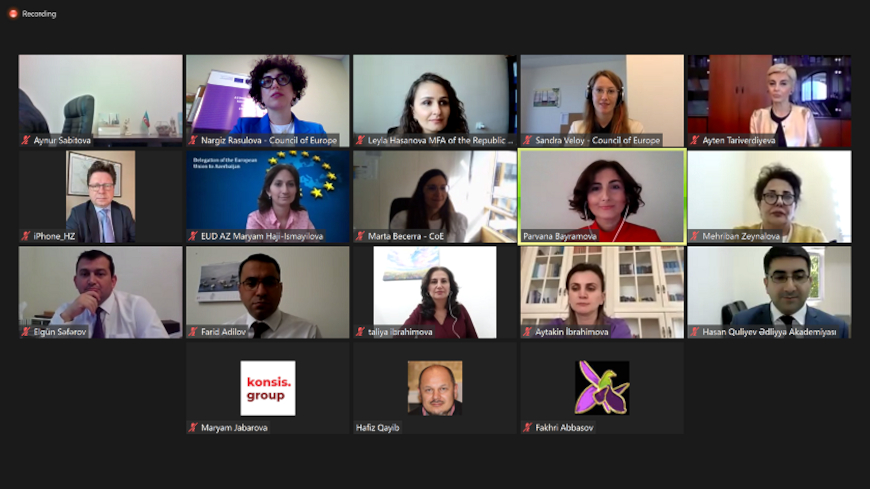At the Board meeting of the project “Raising awareness of the Istanbul Convention and other gender equality standards in Azerbaijan”, which took place in a digital format, the project management informed Board members and observers about the progress of the project, the results achieved to date from project activities and presented an estimate calendar of remaining activities.
The Board notably took note that since its last meeting in February 2021 numerous Council of Europe core materials have been translated and imparted to the benefit of state authorities, civil society and legal professionals, a total of 166 participants attended project activities related to combating violence against women and domestic violence and the Istanbul Convention, and further 500 actively engaged through social media actions. After the presentation, partners presented ideas on how to better contribute to achieve project objectives and discussed possible ways forward.
The Project Board includes the State Committee for Family, Women and Children Affairs, the Ministry of Justice, the Academy of Justice, the office of the Ombudsperson and the Faculty of Law at the Baku State University, as well as the European Union Delegation in Azerbaijan. Civil society representatives participated as observers to the Board meeting. The Board follows the implementation of project activities and guides the project team on how to maximise efforts and achieve impact on the ground in the field of combating violence against women and domestic violence.
This activity was organised within the framework of the Project "Raising awareness of the Istanbul Convention and other gender equality standards in Azerbaijan", funded by the European Union and Council of Europe and implemented by the Council of Europe in their Partnership for Good Governance II.





